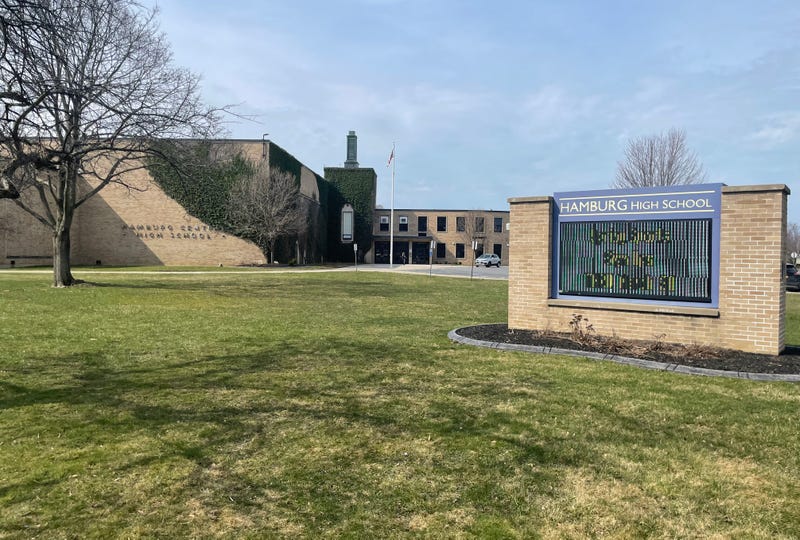
Hamburg, N.Y. (WBEN) - Members of the Hamburg School Board are expected to cast their vote on Tuesday to approve a budget for the 2024-25 school year. This comes a week after the School Board pushed its vote back by a week.
Hamburg Central School District Superintendent Michael Cornell said last Tuesday it only made sense to push a budget vote back without lawmakers in Albany passing a state budget. Now with the state budget passed and the numbers from the budget now set in stone, Cornell says the School Board can proceed with the process.
"They didn't fundamentally change the budget picture for Hamburg. We had a plan in place for '24-25, and what we got from the state Friday night was, more-or-less, what we anticipated, and doesn't change the plan for us for next year," said Cornell in an interview with WBEN.
The 2024-25 school budget totals a little more than $84 million, which is a .85% increase over the previous year, and stays within the New York State Tax Levy Limit with an increase of 2.96%. It also requires a simple majority vote to pass, and will maintain all pre-K-12 programs including classes, clubs, intramurals and sports.
However, where a number of students, parents and other citizens of the district have voiced their concerns with this budget is with the 20 layoffs set to take place with staff and other faculty members across the district.
Despite the frustrations and the number of people speaking out against the proposed budget cuts involving teachers and staff over the last several weeks, Cornell and other members of the School Board have done their part in an attempt to communicate what the budget entails and what it will mean for the district next year.
"We went to four different PTSA gatherings just last week alone, me and a few of my board members, and heard people's frustrations. We certainly appreciate how they feel, we respect their opinions. We've been able to share facts about the budget, and really shared productive dialogue together. So we share the facts, and just have good conversation about the facts around the budget. That's really what the conversations have been," Cornell explained.
The expectation is for the School Board to approve the proposed budget come Tuesday, while others in the Hamburg community have also encouraged residents to approve the proposed budget come May 21, despite the teacher layoffs.
What would happen in Hamburg if the public vote on May 21 goes against the proposed $84 million budget?
"Typically, if a district is not successful in getting a budget passed, that district would go to, what's called, a contingency budget. Then you're not able to spend $1 more in tax than what you collected the year before, and typically in a school district, that would mean significant staffing cuts because you rely on that 2% or 3% or 4% increase in the levy each year, whatever the levy limit allows. That would be very problematic for any school district across the state who is forced into that situation," Cornell detailed.
On top of serving as Hamburg Schools Superintendent, Cornell also serves as the President of the Erie-Niagara School Superintendents Association, where he's constantly in contact with other districts across the region. How might this state budget factor for other districts when it comes to their budgets going forward?
Cornell feels the state legislature and the Governor's Office in Albany is grappling with the challenge of allocating aid to schools across the region and the state in a way that appropriately recognizes enrollment in schools, which is dropping in lots of districts across the state.
"Balancing how they're distributed according to certain student needs, like students with disabilities, mental health needs, districts who are under stress because of migrant populations and things like that, how do we account for poverty and foundation aid formula? Changes in property wealth across the state are impacting reimbursement rates and state aid ratios," Cornell noted. "What the governor has done here, I think, is put everybody on notice. in fact, she's said explicitly she wanted to put everybody on notice that the formula is going to have to change in the future in order to be able to accommodate the variables that are in the formula a little bit more appropriately. I think that's what you're seeing happen."

